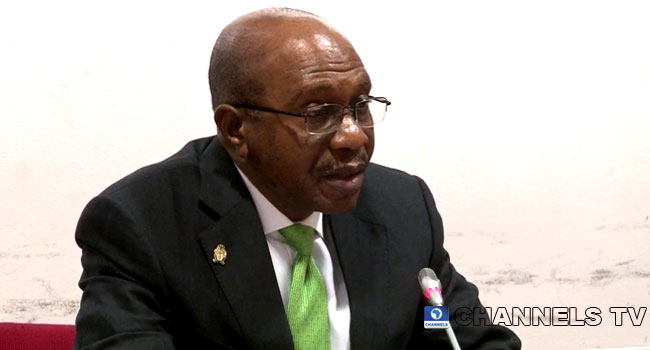By Eugene Onyeji
The Monetary Policy Committee (MPC) of the Central Bank of Nigeria (CBN) held its sixth and final statutory meeting for the fiscal year 2020 on November 23rd and 24th where all members of the CBN MPC committee voted for all policy parameters to remain unchanged.
The committee in line with the current recession and realities facing the economy decided to retain the Monetary Policy Rate (MPR) at 11.50 percent; Cash Reserve Ratio (CRR) at 27.50 percent; Liquidity ratio at 30.00 percent; and Asymmetric window to +100 basis point and -700 basis points, around the MPR.
Mr Godwin Emefiele, the CBN Governor made the announcement while presenting the communiqué of the 276th Monetary Policy Committee (MPC) meeting today, November 24.
Emefiele said that the MPC committee were unanimous in its decision to focus more on getting the Nigerian economy out of the current recession as against focusing on reducing the rising inflation.
Emefiele had projected that the country could enter into recession on the third quarter during the 275th Monetary Policy Committee meeting.
A projection that was confirmed by the National Bureau of Statistics (NBS). The NBS data shows that the GDP report for Q3 which ends in September, saw the economy shedding 3.62 per cent. It had fell by 6.10 per cent in Q2.
Emefiele also said that the committee was of the view that if its decision to increase credit to real sector of the economy is successfully implemented, it would positively impact economic activities as well as improve the supply side which the MPC team believes would eventually lead to the drop in the price of goods and services and further reduce inflation over time.
According to him, the Committee frowned at the view point of some analysts who continue to make reference to the exchange rate in the parallel market and have stated that the CBN only recognizes official foreign exchange platforms like licensed bureau de change as well as the NAFEX window. It urged analysts to stop causing panic in the system by projecting a further depreciation of the naira on the back of their belief that the Naira is overvalued.














